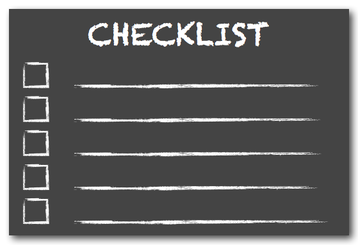|
Okay. It's confession time. As a coach I'm supposed to be super-positive and upbeat. Well, I'm also human. This week hasn't been great; a lingering virus knocked me back with my own fitness goals. You may know that I'm doing the 1000 Mile Challenge. That's a thousand miles before 31 December. It's around three miles a day. Not much, you think. Well, it's not until you miss a few days for whatever reason. I knew I was in trouble when daytime TV, cake and hot drinks were so appealing. So now I've got this pretty big deficit after not walking for five days. I was feeling quite down about it. I'd been out walking in rain, sleet, wind, to get those miles in throughout January and February. But yesterday, I thought what can I do? I wasn't up to walking, but I could manage some exercise indoors. So, I got out my free weights and did a few reps for legs, bum and tum. I told myself that I could do just one set if I felt like it. But I did three. It wasn't earth-shattering but it was something. Today I managed a short walk and, while I was taking part in a coach training webinar, I did some free weights for my arms. I hate doing weights for my arms because it hurts. But I did them and it wasn't too bad as I was focused on the speaker. I kept thinking how easy it would be to let the 1000 Mile Challenge go. Why bother? But the fact is I'm probably not that short of my target and come the better weather and longer days I'll catch up (I hope.) Why am I telling you this? Because I hope it will spur you on to do something towards your own goals however small that step may be. You may feel you can't be bothered but at the back of your mind that little voice is nagging you to Just Do It. I feel better. I feel better for having taken control and stopped feeling sorry for myself. What's on your to-do list? Maybe it's a healthier diet, less booze, less sugar, or maybe it's keeping positive when you're having a rubbish day that's not your fault. Whatever it is...just do it. Give yourself a tiny goal and the odds are you will surpass it.
0 Comments
How many barriers are there (really)?
Let's look at Tanya. (She's not a real client but this scenario is typical of many women I coach.) Tanya wanted to make a significant career change. She didn't want the long commute any more. She also wanted a higher salary. We discussed where and how she could find that job. Obviously, working more locally was going to mean she'd need to approach local companies. I asked her how she could do this. 'I don't think there are any.' How did she know that? She replied that when she'd looked around a year ago, she'd drawn a blank. But that was a year ago, I offered. Maybe things would be different now? She looked unconvinced. How could you find out, I asked her. 'Well, I could look, ' she said. But she then countered that with 'I don't think they would pay what I want.' How did she know that? She explained that a local company would not pay the same as a company in a large city. Yes, but how did she know that for certain? She didn't. How would she know? Only by applying for a job and being offered it. Tanya then admitted she was worried about her age. 'I'm too old for lots of these companies now; they all want people in their 20s, not someone like me of 45.' How did she know? Where was the evidence? There wasn't any; it was supposition. In the space of our session, Tanya had constructed three barriers: 1 There weren't any companies in the area that were suitable. 2 The salaries they paid would not be high enough. 3 They wouldn't employ someone her age. Remember there was no evidence of any of these; only in Tanya's imagination. In reality, there were some companies she could approach. There was flexibility on salary. Her age was seen as an asset because it showed she had experience. How are you closing doors? How many doors are you closing before you have tried? What are you doing or not doing because you feel it's a waste of time? How many preconceptions do you have about something for which there is no proof? Write down what is stopping you moving forward. Then be honest about how much of that is negative thinking, and how much is irrefutable fact. See the difference? How you can become a published author
You may know I'm an author of two self-help books. It was always a bit of a dream to write and when it almost fell into my lap I was amazed. I'd like to share how you can realise your own dream of writing by sharing some tips. I was asked to write my books because they fitted with my experience (many years in education before becoming a coach.) My role My role as a writing coach or mentor is to:
Tap into your own experience You will have something that you are an expert on, or can become an expert on, for your book. It could be your hobby, your professional work, travel, health, family history, biographies, professional 'how to' guides - there are so many options. If you are not quite an expert yet, you can become one if you have the enthusiasm. My role as a writing mentor is to give some guidance on what may appeal to publishers. My clients, whose books have been published, all started off with a few ideas. Natalie has become an international expert on the health condition her book covers. She wanted to write something very different when she came to me. I gently dissuaded her as I thought her idea wasn't unique enough. She was initially disappointed, but when we talked about what she had some knowledge on, it became obvious that she was an expert. She could help other parents going through the same situation. The book she wrote is now sold internationally and recommended by health professionals. Another client Harri used her business which she'd run for around thirty years as the springboard for her books. Very quickly she was asked to write a second book as a sequel. What can you write about? As a starter, how about jotting down at least three ideas for a non-fiction book? Think about your own expertise, places you've visited, people you admire, business or professional experience you could share as training, family history, food, self-help. There will be something. Do some research When you've got your ideas, do some research. Spend some time on Amazon to see if any similar books exist. Yes? But when were they written? Maybe they are out of date or out of print. Can your book have a different angle? If these tips have got you started, why not get in touch for a free discussion about whether we can work together on your writing? How can you be more confident? This is a very common topic which my clients want to work on. Confidence is something that most people want a bit more of. Maybe you need more confidence in your social life so you feel at ease meeting new people or have the courage to go out and try to meet new people. Or perhaps you want to speak up more at work, either in meetings or with your manager. Maybe you want to travel, but feel self-conscious about setting out on your own. Perhaps you experience the 'impostor syndrome'; you are doing a job but feel you are about to be found out (as a fraud) any day now! It might surprise you to know that all of these are very common. The biggest mistake most people make is thinking that everyone else is confident and outgoing. Many people who appear confident are like the proverbial ducks in the pond - gliding along on the surface but paddling like mad under it. This has applied to clients who are CEOs and, to all intents and purposes, appear full of confidence. You are either confident or you are not No. For many people confidence is something you work at until you become more confident. Okay, some people are naturally extrovert. But don't forget that some very confident people are covering up deep insecurities and their behaviour is a mask. Fake it at first In order to appear and become confident you have to act it. Don't wait for 'confidence' to suddenly manifest itself in you. It rarely does. You have to fake it first. One of the best ways to do this is to study other confident people.
Confident people usually speak quite slowly and with purpose. They don't gabble or squeak. They make eye contact, either one-to-one or scanning the room. When they enter a room they stand tall, not with rounded shoulders or looking at the floor. They make others feel important and valued by listening to them and not putting them down. Think of someone you admire who is confident, like you want to be. Imagine how they would behave in a particular situation. Then copy that. I had a client who was terrified of going into a garage showroom, which, let's face it, can be a bit intimidating sometimes; all those gleaming cars and enthusiastic sales people. We agreed she'd go and ask for a brochure, just one small step, then she could leave, all the time visualising how her friend - who was really confident- would behave. At the next session I asked how she'd got on: had she got that brochure? Yes, but more than that: she'd bought the car. Knowing it was a tiny step - she could walk out, leave at any time and never need see them again- partly gave her the confidence to keep going. So you do have to fake it at first. Eventually it will become easier until one day you realise you aren't faking it at all. Tiny Steps So what small step can you take today to build your confidence? Think of where you want to appear confident. In a social situation you could promise yourself to talk to a stranger in a queue, at the bus stop, in a shop. Another client had the tiny target to make eye contact with someone in a supermarket. So instead of head-down, grab a bunch of bananas, she'd wait a bit and smile at someone - just a bit. Another client made an effort to talk to their colleagues by the vending machine at work and be more sociable, or offered to grab someone a coffee when they went to get their own. If you want to be confident at work, set a small goal such as speaking up once in the next meeting you're in. With any kind of personal development you have to push yourself a bit. It might be scary but if you don't try it, you will remain stuck. So the trick is to choose a goal so small that you will achieve it. In reality you might exceed it. And keep a log. If you record every small step towards your goal, on a daily basis, you can read your achievements at the end of the week and realise how far you have come. If you;d like some 1:1 help with this, get in touch. What's holding you back?
Now we are heading into mid-January, you may be falling by the wayside with your new goals. By February they may be a distant memory of something you decided to do on New Year's Eve. It doesn't have to end in tears. To make your goal achievable, make it small enough. Make sure there is a good chance you can get there. It's an old adage, but success does breed success. For example, I need to tidy my office at home. It's a daunting prospect; it's tiny so unless everything is in the right place, it quickly looks chaotic. So what I do is this; break it down into tiny achievable tasks. Like sorting out the 'in tray' on my desk. Or tackling one shelf in the bookcase and deciding if there is anything that can be donated to a charity shop. I know that if I think 'I must tidy my office' I'm going to feel overwhelmed and shut the door on it. Keep an account of your success however small. Find a notebook and write down your achievement. So if you are trying to lose weight or get fitter, don't simply count the pounds you've lost. Count the small stuff too, like the biscuit you avoided, the 'office birthday cakes', or the fact you took the stairs and not the lift or escalator. Every tiny achievement adds up and is worth recognising. Too often we focus on the end goal and not the small steps of our journey. Count everything you do that is going somewhere towards your goal. And if you have a bad day, don't dwell on it. Today is a fresh slate; it's a waste of time thinking about what you didn't achieve yesterday. Focus on the here and now; even if you only achieve one small thing today, you are moving forward. Is there enough detail in your goals?
Look at the image; I love it. There are fresh colours; green, white, yellow. The typical colours of spring and a new beginning. The hand holds a pencil over a blank page. So anything is possible. What will she draw? What will you write on your page of goals for this year? You may want to get a better job, earn more, have less stress, exercise more, eat more healthily, see your friends more, relax more.... the choice is yours. It's easy to choose goals; it's harder to achieve them. Why people fail at their goals One reason is the lack of detail. You want something, but do you know what you need to do to reach that goal? In very precise terms. My two goals this year are to read more (one fiction book a fortnight) and the 1000 Mile Challenge. That's 1000 miles of walking in a year. Yes, it sounds a bit daunting. But it's only 2.74 miles a day. Only. Hmmm! Being realistic I know there will be days when I don't reach that target as my work is desk-based. I have to go out to even start to achieve that target. But I know that. And I know what I need to do; my circular hill walk is enough to reach the target. If I don't do it (if I run out of daylight hours) I know I need to walk around the streets for 45 minutes. If I manage neither, I've got to get in some extra miles when I can. And the reading; that's at least 50 pages a day. So if you want to achieve something, it needs to be broken down into detail. Finding that new job isn't just going to happen. You may need to network in person (where and when?), become involved in social media and make new contacts, search for job vacancies or send off your CV speculatively. Write down the details Again, all these great goals won't happen unless you pin yourself down. If you're going to network in person, say when. If you want to engage via social media, pin yourself down to an hour at X time each day, if you want to apply for jobs, set yourself a window of time on however many days of the week when you can work on your CV and send it. Okay, we all need to be realistic; you may not achieve something one day but that's fine. Keep going. I know that even if I don't reach my 1000 miles, I might still walk 900 or even 800. For me that would be an achievement still. How can you start planning and put in the detail? If you can't plan, or find you run out of time too often, the question is 'How much do you really want that thing?' And there is another blog here on that - test your motivation score. Is work feeding your passion? January. It's that time of year when you may dread returning to work after an extended Christmas break. You are not alone. According to a recent Gallup poll, over 80 per cent of workers hate their jobs. That means for every 10 people in your organisation, 8 would rather be elsewhere. Isn't that a very sad thought? Many of my clients come to me about career issues: stress, dealing with tricky colleagues, how to be promoted, what to do if they downsize their career, what else can they do instead. Often, they have felt demotivated or stressed for years and come to me when they have reached breaking point: their health deteriorates, their relationships suffer, they are depressed. My role is to help clients find something they enjoy doing better or to enable to them to adapt their thinking so they are more content in their current career. The Negative Mindset The trouble with career change is that it's easy to fall into a negative mindset.
When I've challenged their beliefs they are often without foundation:
Later Retirement A recent example is a high flyer in his early 60s who has used Teach First to get into teaching from commerce. At a time when many teachers are hanging up the chalk - or the white board marker - he's starting in the profession, ready for a new challenge. It's becoming increasingly common to change careers two or more times in a lifetime. Retirement ages have risen to 67 and it's predicted it will rise soon to 70. Is it realistic to want to do the same work you chose at 18? For some people, who have a true vocation, yes. For many, no. The perception of a 'job for life' has changed. So what is YOUR passion? What would you rather do? Have you heard yourself say 'I wish I could have been X.' It's rarely too late. Ok, let's get some realism in here. Some careers will be closed because of the length of training involved, or maybe they demand top physical fitness. But if you are anywhere from 40 to 50 and want to completely retrain, with another 15 or 20 years of working life left, what's stopping you? My advice to my clients is: Start exploring.
Results! I've had clients do ALL of the above. They've found their passion and never looked back. What's stopping YOU? If you need some help to get started, get in touch. www.glyniskozmacoaching.com Work from home. How does that sound to you?
I'm talking about being self-employed of course, not just staying away from the office two days a week. Lots of my clients who are considering a career change realise that being self-employed is an option, as a consultant or freelancer. Being self-employed usually provokes extreme reactions: they love the idea or feel terrified. I've worked from home off and on over the years and, of course, I'm self-employed. So what's it like? Does the appeal of avoiding the morning commute to work outweigh everything else that being self-employed includes? Extrovert or introvert? Let's start with who you are: extrovert or introvert? In a nutshell, extroverts get their energy from interaction with other people. Introverts tend to cope well being alone and feel less energised with lots of interaction. According to an MBTI assessment I had, I'm only just an extrovert. I like company, to a degree, but I'm far from a party animal. I enjoy a certain amount of solitude, but if a whole day goes by when I've not spoken to anyone, even on the phone, I'm a bit 'Aaaaargh'! One way of getting round this is to network with other people in the same situation, meet up for a coffee, provide mutual support. Or, fit in meetings with friends during the working week. Working from home can involve less interaction, unless you are out and about seeing clients during the day. How do you feel about that? Do you love the buzz of being with colleagues or clients? Or find them an annoyance? Do you love being part of a team or are you happy on your own? Coping with insecurity No matter how many faults your current employment has, or had, one thing is for certain: you'd be paid each month. Okay, your own performance might affect the amount, but for most employed people the money arrives each month. This is not the same when you are self-employed. Every pound is earned by you and your efforts. This is the main reason some of my clients won't consider being self-employed. But everyone is different. You may have savings, another stream of income, or you can survive on very little. How does that feel? Creating space for your work The image I've chosen for this blog is aspirational. My own office looks nothing like that. So do you have the space at home to work? It could be your spare room, a space under the stairs, your kitchen or dining room table, a corner of your lounge, a loft conversion or a garden shed. There are an increasing number of freelancers sharing office spaces, which spreads the cost, but also means you get some support and interaction from people like you. If you want to work from home, and have children, how will that work? The last thing you need in the final stages of closing a deal with a client are teenagers arguing in the background, dogs barking, neighbours shouting, or a baby screaming. The pros
The cons
Some of my clients love being self-employed. While working with me they have taken their business out of the spare room, into offices, and employed staff. Others find it impossible to think about working in a certain amount of isolation and with financial uncertainty. What about you? If you need to talk over your options, why not arrange a Clarity Session with me? This week I've been writing my Workbook for 2018 for my clients. I've loved doing this; it's a free 30 page book full of tips to keep you on track in between or after your sessions. There are exercises and inspirational quotes to keep you going. What is your Motivational Score? One of the questions I ask is 'What is your Motivational Score?' In other words, how much do you really want your goal? And, more to the point, how hard are you willing to work at it? It's very easy to say, 'I'd love to be thinner', or 'I want to stop wasting money each month,' or 'I need to be more assertive at work,' or 'I'm really not happy at work and must find some other career.' But exactly how much time and effort are you willing to put into any of these? Are you prepared to pick yourself up when it gets tough? The difference between success and failure is often that successful people keep going. They have the same amount of talent as you do, the same circumstances, the same difficulties. But they keep going because they really want their goal. Without staying power, your goal remains a wish. There is no one with a magic wand to bring about the changes you want. The only person who can affect change is you. And of course my role is to support and help you stay on track. But you need to be honest and ask how much you want that goal. How much do you really, really want it? A 5 would be 'Yes, that'd be nice', a 7 would be, 'That sounds great,' and a 10 would be, 'I want that more than anything.' Out of ten, what's your score? If it's lower than 8, do you need to reassess? Or, remind yourself of the benefits that your goal will bring you. Write them down. 'My goal will bring me....' If you could do one thing today that would bring your goal closer, what would that be? Okay- so what's stopping you? If you're scoring 8 and more but you don't know how to start, maybe we should have a chat. Take a Life Audit. An exercise to get you started on making those positive changes. Why wait until January to start evaluating what you want to change in your life? Perhaps you know already, but are having a problem with your motivation. If you want to make some changes, the most important part is to commit your goals to paper. Write them down. Start your audit I always suggest my clients start with an audit. You can draw up a checklist like the one above, or create a Wheel of Life. Simply draw a circle on a blank page. Now divide it into segments (like cutting a pie) - you'll need around 6 but it's not crucial to have 6. You can have 8 or more. Give each segment a label, for example:
Okay, now you have to evaluate how satisfied you are with each of those. What does 'satisfied' mean? By 'satisfied' I mean are you fulfilling your potential? Do you have more to give? Are you coasting? Have you tried to make changes and plateaued, so you are stuck and settling? Is it just 'okay' but not really what you dreamed of? Would you like more or less of whatever it is? Be honest. Score them out of 10. So, zero would be completely dissatisfied and 10 would be perfectly happy. What's a 'good score'? As a guide, I suggest that a score of 5 or less is an area you need to work on. But, it's your choice. Choose one or two of your lower scores. What for you would be a good improvement? Moving from 2 to 5, 5 to 7? 6 to 8? 8 to 10? Your timescales Coaching is nothing without a timescale. We can all dream... and dream on! But to live the dream you have to do stuff. Where would you be in a month if you took some action? Where could you be in 6 months? A year? What's stopping you? You know what needs to change, but why can't you do it?
Maybe you could add your own to this list if helpful? Taking action How about you choose one thing that would help you to make a positive change now? It could be a change in your mental attitude (positive instead of negative); seeking out people who can help you; reducing the number of biscuits you eat in a day....one tiny thing. Being accountable The beauty of being coached is that you become accountable to someone else. Me. You have said you want to make changes, you have a plan of sorts, so it's over to you now to follow through.
Keep a record. I always suggest you keep a diary or journal where you record all small achievements, every day. If it helps, treat yourself to a pretty notebook instead of the cheapest. Come on - these are YOUR achievements so buy that notebook! I don't recommend keeping a journal online because, without being too new age about it all, there is energy in your handwriting. Whether it's fast and furious or slow and methodic, those entries say as much about you as the words. What you write down It might be something small, like refusing the office cake if they are trying to lose weight, to speaking up in a meeting if they lack confidence, or saying 'No' to someone asking a favour when they are really pushed for time. It could be staying calm when faced with a stroppy teenager, or making dinner from scratch even when you are knackered. It could be some networking or other marketing on a business that one day will bear fruit. Or walking a bit further to up your exercise. We're talking small, not world changing. (Though that's okay too.) Try to write down 3 positive achievements every day. Ideally, a couple should be connected to your main goal. But if you've made fantastic chocolate brownies today as well as possibly updating your CV, applying for a job, going to an interview, or working on your negative thoughts, credit yourself for that too. At the end of each week, look back over your journal. You see; you've done one heck of a lot more than you imagined. You've got the idea? So, keep going. And if you need some help, get in touch. |
AuthorI'm Glynis, a career, relationship and wellbeing coach. These are my tips on what life throws at people like us and how coaching can help. You can read more about me here. Do get in touch if I can help you. Archives
March 2024
Categories |











 RSS Feed
RSS Feed